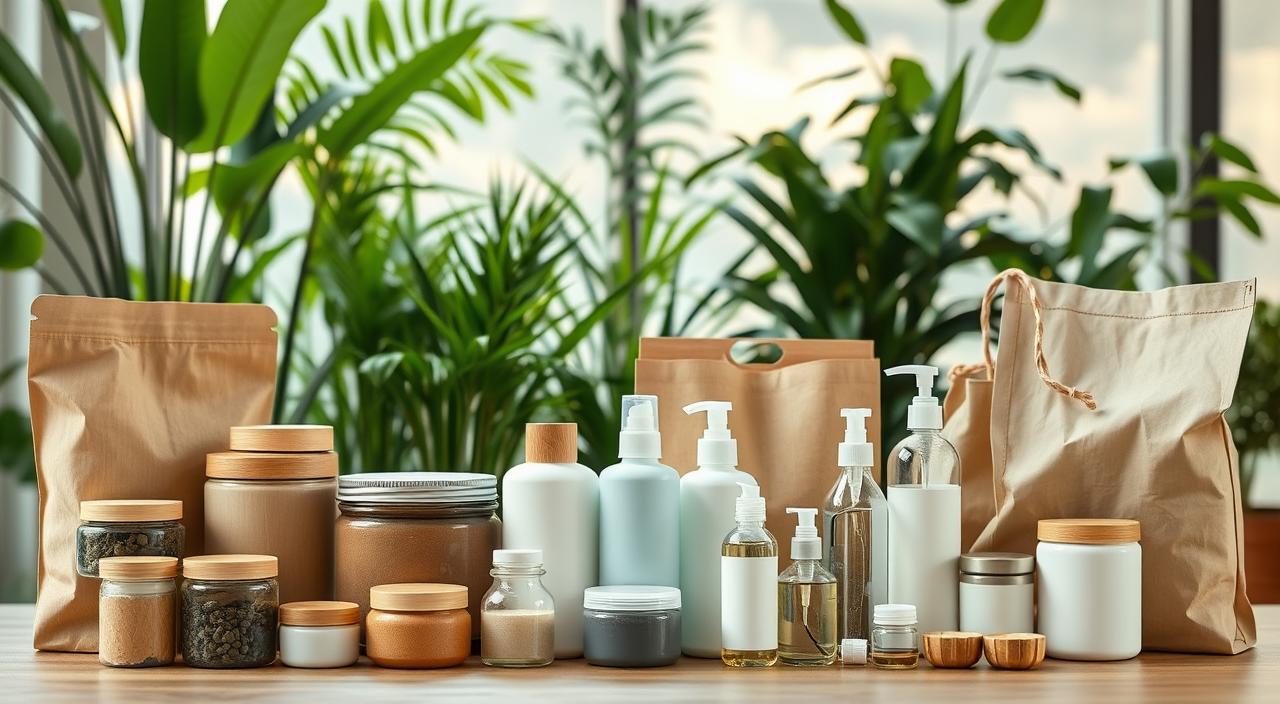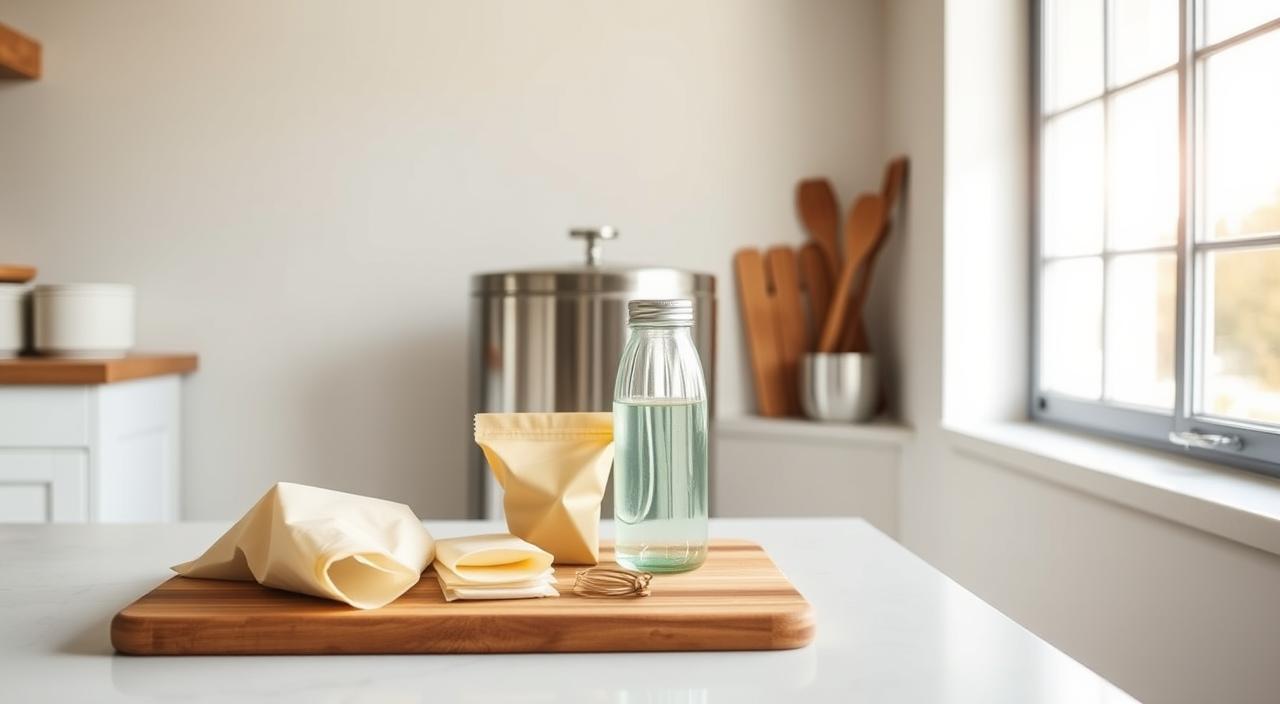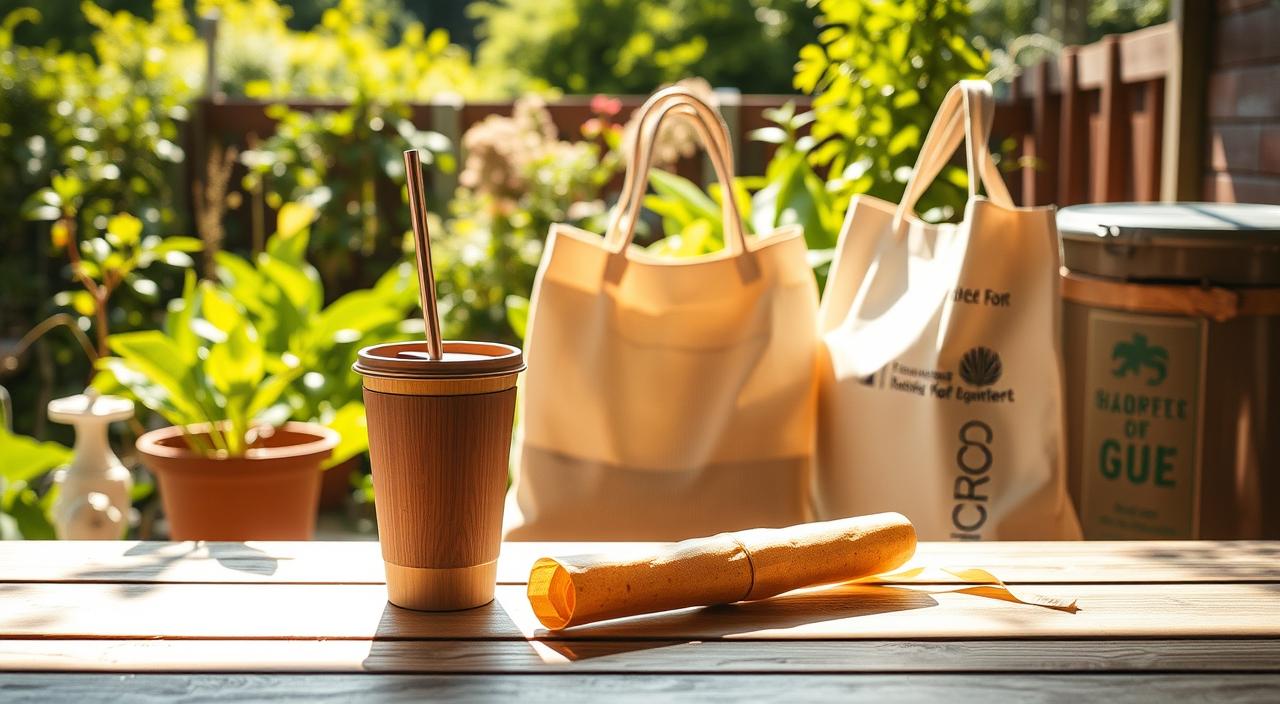Eco-friendly alternatives to single-use plastics are transforming the way we live by reducing our environmental footprint while maintaining everyday convenience. Many of the items we use once and throw away—like coffee cups, carrier bags, and plastic wraps—contribute to a growing global waste crisis. In fact, roughly half of all plastics produced are designed for single use, leaving lasting consequences for ecosystems across the planet.

Fortunately, meaningful change doesn’t require drastic overhauls. With a few intentional swaps, you can drastically reduce waste while maintaining convenience. Across the UK, policy shifts like Scotland’s recent ban on disposable cutlery and polystyrene packaging signal the urgency of reducing plastic reliance. England is also on track to implement similar restrictions.
This guide explores practical, eco-conscious alternatives that can transform your kitchen, bathroom, and shopping habits—helping you live sustainably without sacrificing comfort or style.
Key Takeaways
- 50% of global plastic production is for single-use items
- The UK is enacting bans on high-waste disposable products
- Simple swaps can reduce household waste dramatically
- Reusable products often save money over time
- Local initiatives and refill stations make change easier
The True Cost of Single-Use Plastics
The convenience of disposable plastics comes at a steep environmental price. Most plastic waste ends up in landfills or oceans, disrupting ecosystems and harming wildlife. Microplastics now appear in soil, air, drinking water, and even human bloodstreams.
One common example? The humble takeaway coffee cup. In the UK, around 7 million are thrown away daily—most of which are unrecyclable due to plastic linings. On a global scale, researchers have detected microplastics in every seawater sample tested.
But the good news is this: small, consistent actions can drive massive change.
Everyday Alternatives That Make a Difference

Adopting eco-friendly alternatives to single-use plastics doesn’t have to be overwhelming. Start with one swap at a time and build momentum.
1. Reusable Water Bottles and Coffee Cups
Invest in a stainless steel bottle or insulated travel mug. Not only do these keep drinks at the right temperature, but they prevent hundreds of single-use items from entering landfill each year.
Did you know? Many UK cafes offer 25–50p discounts to customers who bring their own cups. Pret A Manger and Costa Coffee are just two examples leading this initiative.
Sustainable Kitchen Swaps
Replacing Plastic Wraps and Containers
- Use glass storage jars for pantry staples like rice and oats. You can repurpose old jam jars to save money.
- Beeswax wraps or silicone covers replace cling film and are washable and reusable.
- Bamboo or metal utensils are more durable than plastic and elevate your kitchen aesthetics.
| Swap This | For This |
|---|---|
| Cling film | Beeswax wraps or silicone lids |
| Plastic containers | Glass jars or metal tins |
| Plastic sponges | Compostable loofah or coconut scrubbers |
Plastic-Free Food Prep and Cleaning
- Stainless steel lunchboxes keep meals fresh and eliminate the need for sandwich bags.
- Wooden dish brushes with natural bristles last longer and decompose after use.
- Switch to compostable bin liners for greener waste disposal.
Explore more tips in our guide on kitchen decluttering and rubbish reduction.
Bathroom and Hygiene Alternatives
Plastic-Free Personal Care Products
The bathroom is another hotspot for plastic waste. Thankfully, sustainable options abound:
- Bamboo toothbrushes are biodegradable and often come in recyclable packaging.
- Shampoo bars last longer than bottles and avoid unnecessary plastic.
- Refillable deodorant tubes, cotton flannel wipes, and bar soap replace their plastic-laden counterparts.
| Swap This | For This |
|---|---|
| Plastic toothbrush | Bamboo toothbrush |
| Liquid shampoo bottles | Solid shampoo or conditioner bars |
| Disposable razors | Stainless steel safety razors |
Try this: Replace one plastic item each week. A gradual approach ensures long-term success and builds sustainable habits.
Greener Shopping and Packaging Habits
Ditching Plastic Bags and Shrink-Wrap
- Carry a cotton tote or foldable cloth bag when shopping. These alternatives can be reused hundreds of times.
- Buy naked produce instead of shrink-wrapped options. Many supermarkets now support bring-your-own-container schemes.
Refill and Bulk Stations
Many UK shops now feature refill stations for pantry goods and cleaning products. Stores like The Source Bulk Foods and Planet Organic encourage customers to bring their own containers.
Glass bottles and tins can also be repurposed into vases, pencil holders, or spice containers—reducing the need to buy new.
Celebrating Without the Waste
Celebrations often generate large amounts of rubbish. Here’s how to make them joyful yet sustainable:
- Choose fabric bunting over plastic decorations.
- Serve food on compostable palm-leaf plates or rent proper dishes.
- Replace balloons with paper fans or eco-confetti.
- Use metal straws, which last years and eliminate 1,000+ plastic straws from circulation per household.
Even small changes at events can reduce overall waste by up to 60%.
For more sustainable lifestyle inspiration, explore our post on hosting a zero-waste garden party.
Plastic-Free Packaging Trends

Biodegradable and Compostable Options
Innovative brands now package products with plant-based films, sugarcane plastics, and cellulose wraps. These alternatives break down in months, not centuries.
However, be cautious—many “green” labels can be misleading. Look for third-party certifications such as:
- FSC (Forest Stewardship Council)
- Soil Association Organic
- B Corp Certification
Avoid plastic-lined items like tea bags (many contain polypropylene). Opt for loose leaf tea and a reusable infuser.
Brands Leading the Way
Forward-thinking UK companies are setting examples with zero-waste packaging:
- Ecover offers refillable cleaning products.
- Who Gives A Crap delivers toilet paper in compostable wrappers.
- Lush promotes package-free cosmetics.
By supporting brands committed to sustainability, consumers can drive industry-wide transformation.
Conclusion
Plastic reduction isn’t about being perfect—it’s about making better choices, one at a time. From switching to solid shampoo bars to carrying a reusable shopping bag, every action counts.
Our homes are where change begins. With glass jars, stainless steel containers, and bamboo products becoming more accessible and affordable, transitioning to eco-friendly alternatives to single-use plastics has never been easier.
So, take the first step. Browse a local refill shop, pack your groceries in cloth bags, or enjoy your next coffee in a travel mug. Over time, these habits reduce your footprint, inspire those around you, and help protect the planet for generations to come.